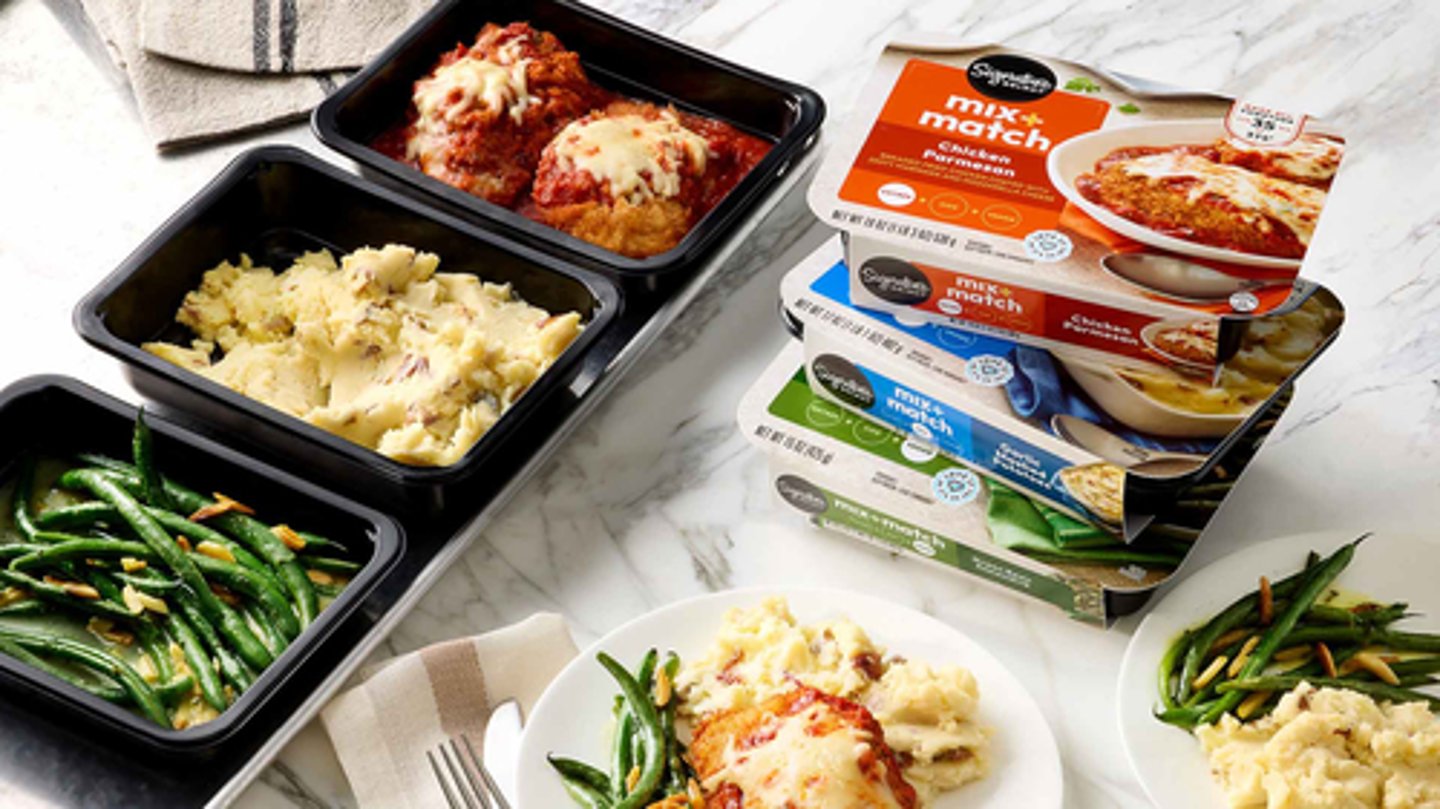Innovation Driving Growing Consumer Interest In Frozen Food
One in five consumers who purchase frozen food items usually buy a store-brand product, and that figure is growing, according to the report The Power of Frozen 2023 from the American Frozen Food Institute (AFFI).
The big factor turning the eyes of consumers toward private label products, unsurprisingly, is price. While private label and national brand frozen products each saw unit share erosion in 2023 — -3% for private label and -5.4% for national brands — both segments saw dollar sales grow 7.7% during the prior year.
Also notable is the rather weak brand loyalty consumers have within frozen food despite the category having some long-standing national brands. The AFFI report found that 20% of consumers usually purchase private label frozen food products, while 16% said they prefer national brands. Nearly 4 in 10 said brand preference varies by item and 26% have no brand preference.
“I think many folks looked at frozen food as offering the benefit of an easy meal solution. But it's also these core consumers who are recognizing and planning meals around frozen, frozen ingredients and frozen meals, which I think is an interesting buying habit that we're seeing.”
— Mary Emma Young, American Frozen Food Institute
While the overall lack of consumer brand loyalty would seem to allow retailers to expand their frozen selections of private label products, the continued desire of consumers to seek out products that fit their needs is beneficial to overall sales of frozen products.
“I think this is a case where private brands and national brands can win together,” said Mary Emma Young, vice president of Communications with AFFI. “Consumers are looking to experiment and will be in the frozen food aisles experimenting and willing to try new products.”
While brand loyalty is limited across the board in frozen food, the product category continues to see an evolution in how consumers view what has long been a core category in the grocery world. Young noted that some shoppers are eating frozen food products daily while others are engaging with the category a couple of times a week.
The alpha users of frozen foods are providing a blueprint for growth, Young said, as shoppers in this group are turning to frozen food as solutions for planned occasions while others are recognizing the choices they now have to support daily meal needs.
“I think many folks looked at frozen food as offering the benefit of an easy meal solution,” she said. “But it's also these core consumers who are recognizing and planning meals around frozen, frozen ingredients and frozen meals, which I think is an interesting buying habit that we're seeing.”
“There is a mindset among consumers on the product’s overall value simply because they last longer in the freezer than similar products that can spoil in your refrigerator or on the counter. We’re seeing more consumers turn to frozen products as a solution to save money.”
— Chelsey Capps, Daymon
Bill Bradshaw, vice president of Sales at Federated Foods, is seeing private label growth in frozen foods across a host of product segments. Frozen meat, poultry, seafood, frozen breakfast selections, and dinners/entrees are all showing strong performance with each outpacing national brands.
Additionally, he noted that private label products in frozen plain vegetables, potatoes and onions, and frozen bread dough each are performing well.
"Consumers continue to look for ways to stretch their household budgets due to higher food prices," he said. "One way this can be accomplished is with meals prepared at home. The strong performances of the categories mentioned above are evidence that consumers are turning to private label options to prepare satisfying home cooked meals while saving money."
Chelsey Capps, director of Thought Leadership at Daymon, said continued innovation within the frozen food segment is having a significant impact on how consumers view a category that has long been best known for its assortment of vegetables, pizza, and french fries.
More recently, some retailers have used the increased focus on frozen food to add premium product assortments. Notably, SpartanNash recently launched its Finest Reserve private label assortment of frozen pizza that, among other products, includes a line of upscale frozen pizza made in Italy.
Additionally, Albertsons earlier this year launched its Signature SELECT Mix & Match assortment. Shoppers can choose from a selection of frozen entrees, sides, and veggies and cook them together in a standard oven at 375 degrees for about 35 minutes. Product pricing ranges from $7.99 (veggies) to $12.99 (entrees).
With this type of innovation, there has also been an evolution in the conversation about price. While consumers remain cognizant about the price of items and some are turning to private label products to save money, more shoppers today are factoring in the overall value of each product into their purchase decisions.
“There is a mindset among consumers on the product’s overall value simply because they last longer in the freezer than similar products that can spoil in your refrigerator or on the counter,” Capps said. “We’re seeing more consumers turn to frozen products as a solution to save money.”
There is also a growing confluence of the convenience frozen food offers with the high perceived value products in the category offer. Capps noted retailers need to maintain a product assortment that provides solutions for those in one-person households to larger families that need larger pack sizes.
“I think across the board we’re seeing a variety of things happening by way of pack size simply because of inflation,” she said. “It’s really important for retailers to create custom strategies for their private brand programs. For some, it would behoove them to go after some of these larger pack sizes. This could prevent a larger family going from one store to another store simply because one store doesn’t have larger-sized items that offer a greater value.”
A component of the value proposition is reducing food waste, a conversation topic that has gained momentum because of higher prices and the positive impact reducing food waste has on the issue of sustainability. Young with AFFI noted more consumers today have linked the two issues together and have realized the amount of money that can be saved when purchasing frozen products.
“It allows consumers to stretch their dollar further,” she said. “They are spending less money on food that might otherwise get thrown out.”
"Reducing food waste is top of mind with today’s consumers," Bradshaw added. "Frozen foods help curtail food waste by offering extended shelf life versus perishable alternatives. Another advantage with frozen foods is that they allow you to use only the amount needed per meal occasion."
And as retailers look to boost sales of frozen food, Capps feels private label provides a unique opportunity to not only enhance the flavor profile of assortments but also give shoppers unique product assortments such as the aforementioned products now offered by SpartanNash and Albertsons through their respective store brands.
“Upwards of 98% of national brand assortments overlap across retailers,” she said. “Private brands are arguably the strongest strategic lever that retailers can put to drive competitive differentiation, shopper loyalty, and better meet complex consumer needs.”
She pointed to a recent Daymon survey in which 92% of consumer respondents said they trust private brand products as much or more than national brands as an indicator of the opportunity retailers have to expand their store brand assortments.
“(Retailers) have permission to innovate beyond their wildest dreams and come up with products that are unique and offer standalone opportunities that drive exclusive loyalty,” Capps said.






